How to Change Your Mind. Michael Pollan
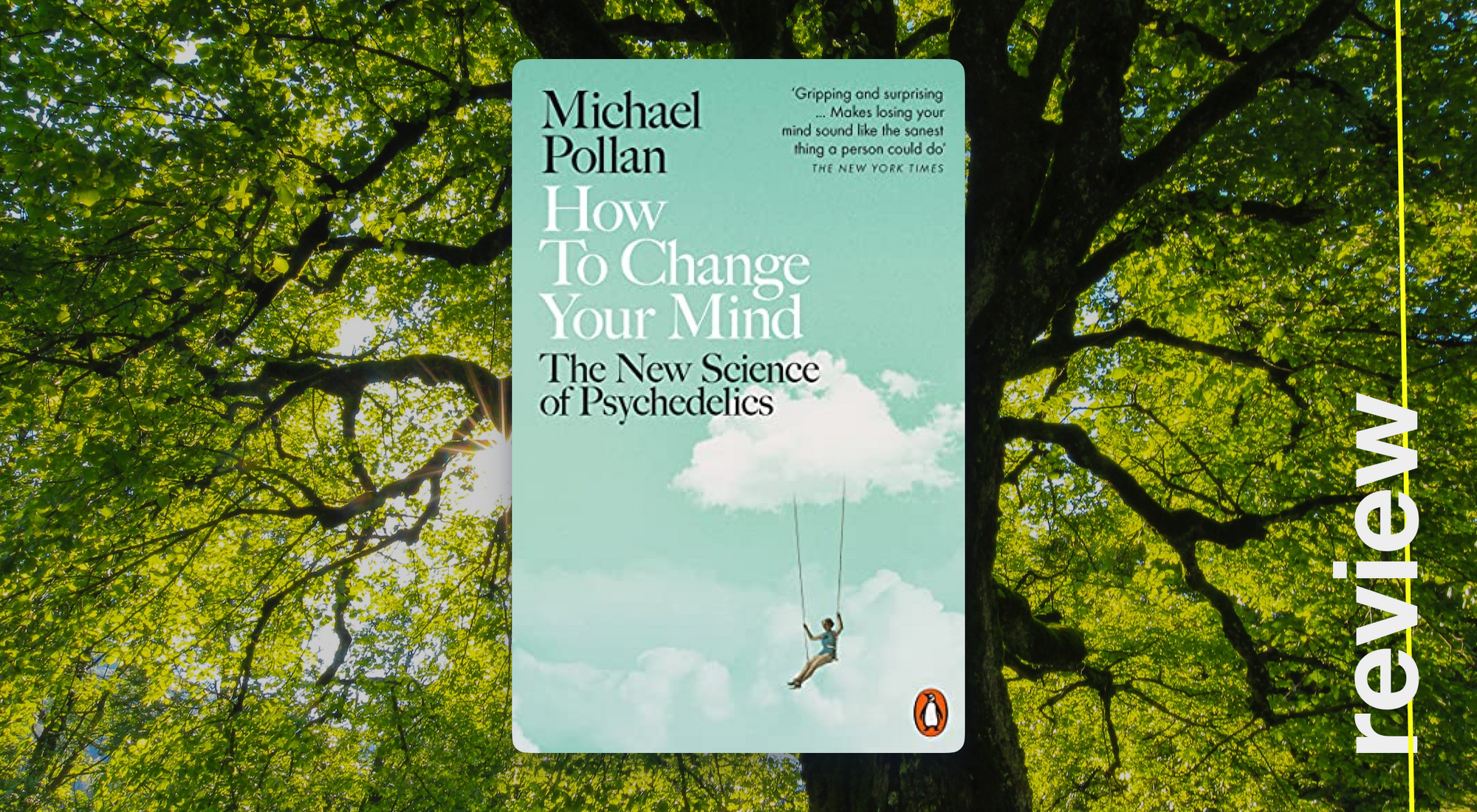
It's a perfect book to learn about the current state and history of psychedelics in culture, science, and medicine:
- what neuroscientists think about the way psychedelics work;
- what doctors think about psychedelics as medication for mental health issues;
- how the psychedelics were introduced to our culture, and how did they get to that sketchy reputation they have now;
- and how the scientific community tries to shake this reputation off of them.
The text's authority is earned by both thorough research and the writer's personal experiences. From start to end, one chapter is a diary of adventures on the border of the legal field, and most likely on the side opposite the author used to. There's no shortage of trip reports; there's a bunch on Reddit, for example. But none of those are written so aptly. And Reddit is no more, anyway.
And it's one of those rare cases where it makes sense to pick up the audio version of the book, not due to its convenience, but to elevate the experience. It's nice to know that every word and all the grandfatherly intonations come directly from this established plant researcher.
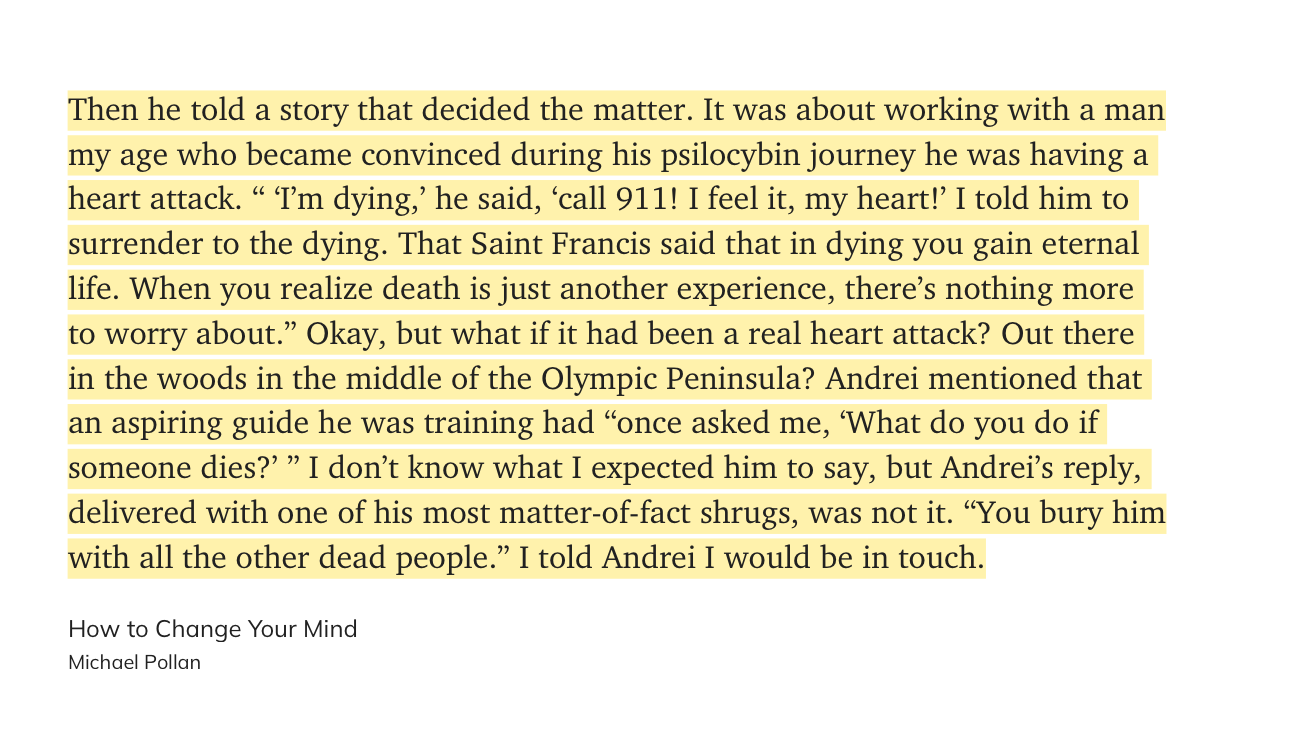
Main point
If I were asked to pick a single main thought out of the 14-hour narrative, I'd take this one: altered states of consciousness induced by psychedelic substances are a source of an alternative perspective on the world. It's neither good nor bad on its own, and there's nothing particularly unique about it. As it's always the case, context matters.
A portion of magic mushrooms can help one heal the relationship with oneself (whatever that means), but it also can help one get run over by a car. Shattering into fractal patterns reality can be a cultural and cognitive shock for an adult, but it may as well be a default outlook of a baby yet to be nurtured and trained to see things the way we see them.
Whether they stem from language, culture, or allegiance to a biological species, there's no shortage of alternative perspectives on the world.
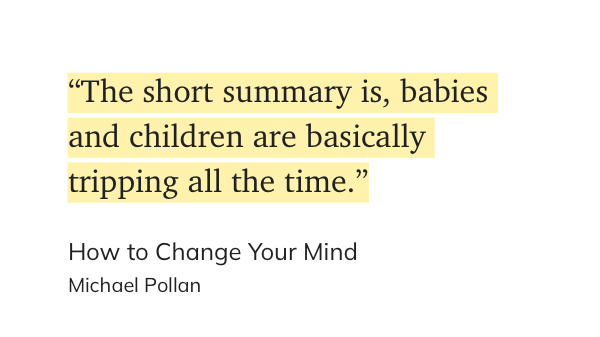
On hidden influence of “mystical experiences”
With a careful look at the history of religious teachings, all kinds of art and architecture, and even the technology we use, it's not that hard to see the traces of altered states of consciousness. Whether substances induced those or not is of no significant import.
Roses in cathedrals, sand mandalas, or mosques' ornaments are all a tad trippy. The same goes for religious and philosophical texts. Epicurus, St. Augustin, Spinoza, and Wittgenstein practiced the same craft; they tried to grab a piece of the unknown and explain it in the language of our everyday experiences.
And if association with religion and philosophy seems obvious, the stories about the almost mainstream status of LSD in the Silicon Valley of the 60s surprised me a little.
By the way, “mystical experience” refers to the fact that those are hard to convey in the language of the “norm”. They're mystic, as in mysterious and ineffable. It's not about ghosts, alchemy, astrology, or guaranteed retirement paychecks from the state.
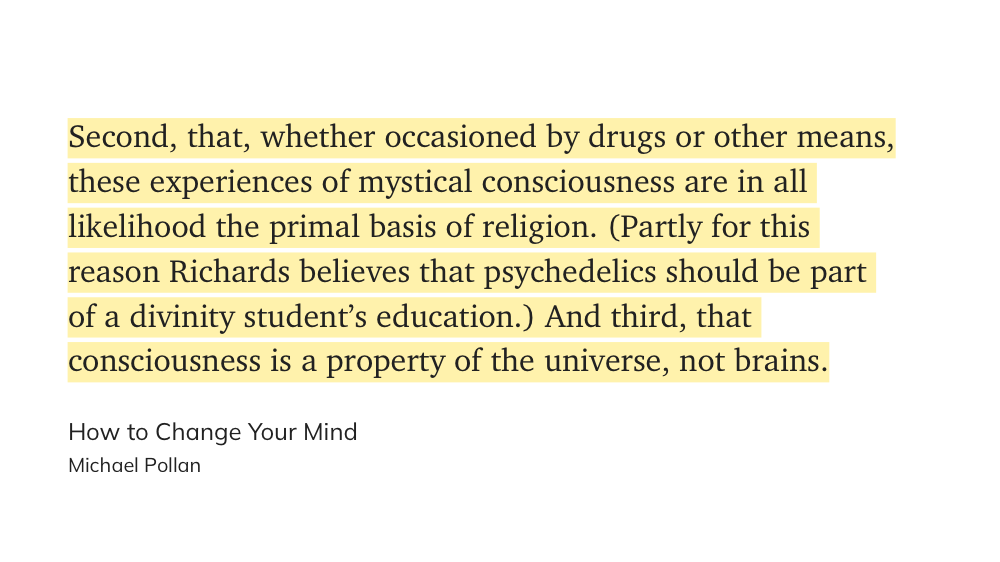
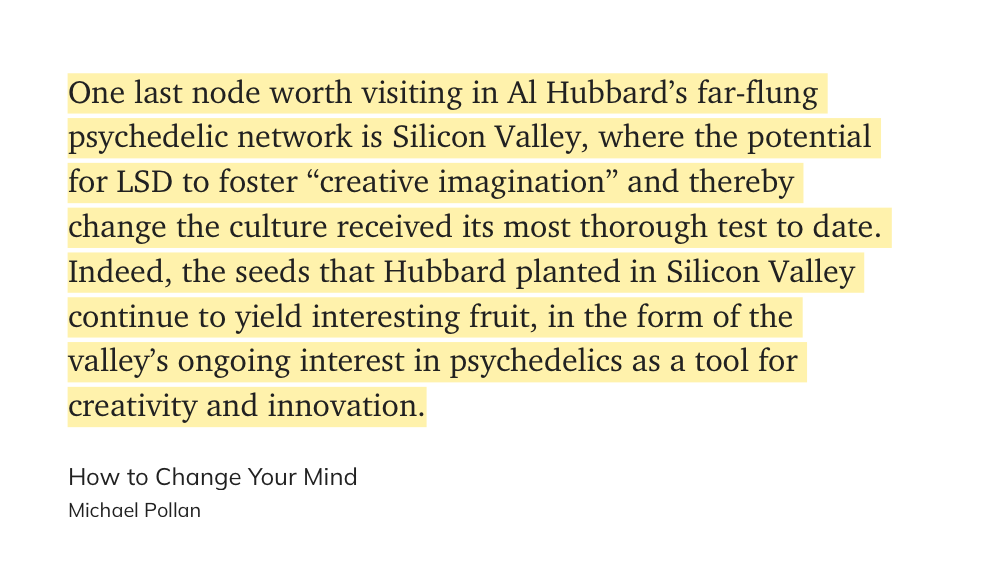
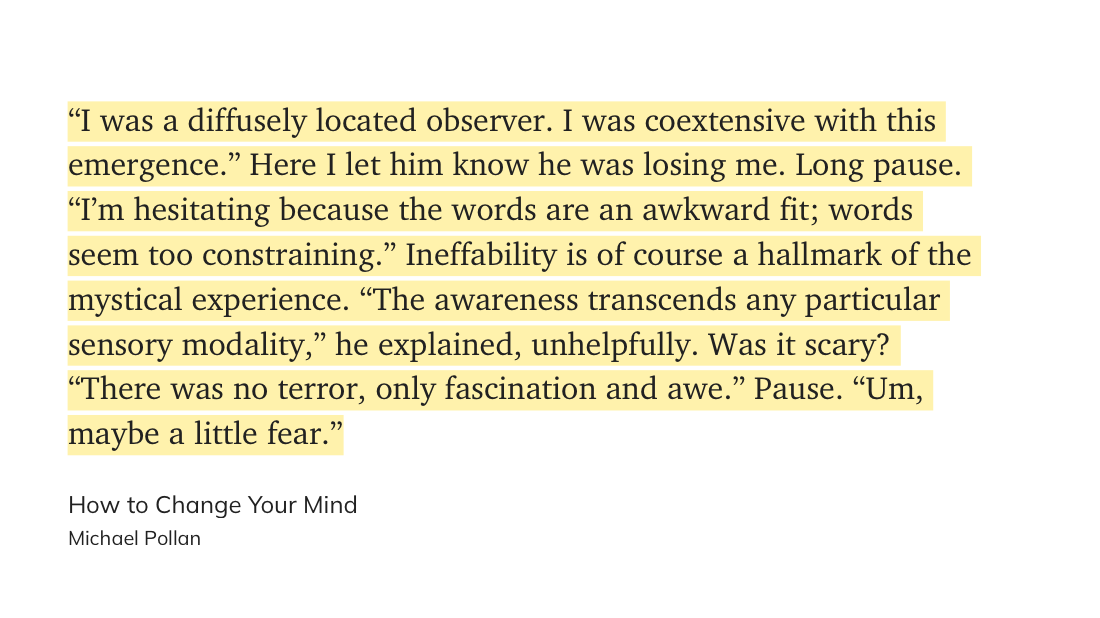
On “cultural vessel”
In the accounts of those who participated, including Pollan himself, the experiences are characterized as something positive, sometimes life-transforming positive. On offer: a lost sense of loneliness, the realization of your interconnectedness with the whole, and dissipated fear of death that follows the act of acceptance of your mortality.
That's some powerful stuff with a huge potential to better many people's lives. But as Pollan astutely notes, there has to be a cultural vessel to interact with this potential.
South American native tribes had those cultural vessels for ages and continue to use some of them. Our civilization also has some, but those are primarily underground. Not to get too political: but the attempts to normalize some of the practices were squashed during a shameful (and there's no other kind) moral panic of the US administration in the 70s. The effect of psychedelics on the youth was deemed undesirable.
If not for the global mental health crisis and the apparent helplessness of the pharmaceutical industry, we might never take this whole thing out of mom's basement.
And it's ironic, considering that it was the Life magazine chief editor and a J.P. Morgan VP who made the first attempt to make psilocybin mainstream. Making his ancestors proud, no doubt, as a proper civilized white colonizer, the banker's adventure eventually destroyed the native village of the woman who guided him into the rituals of the mushrooms. She asked him not to advertise the thing too much, but obviously, he told about it to the whole world, and hordes of undesired tourists made the place unlivable.
Chances are, soon, our shamans in white coats will get enough of a grip on their peer-reviewed rituals, and these potent molecules will help many people.
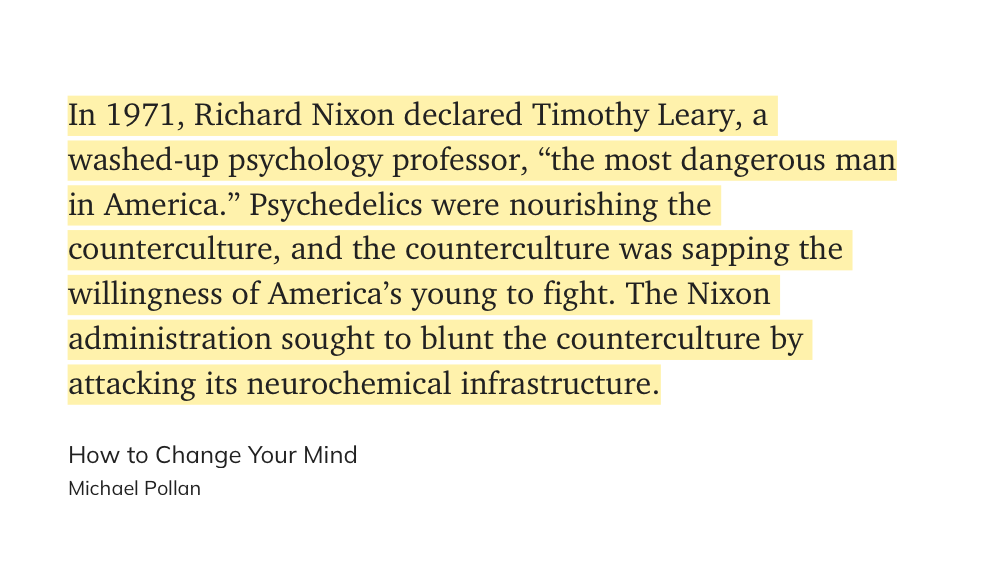
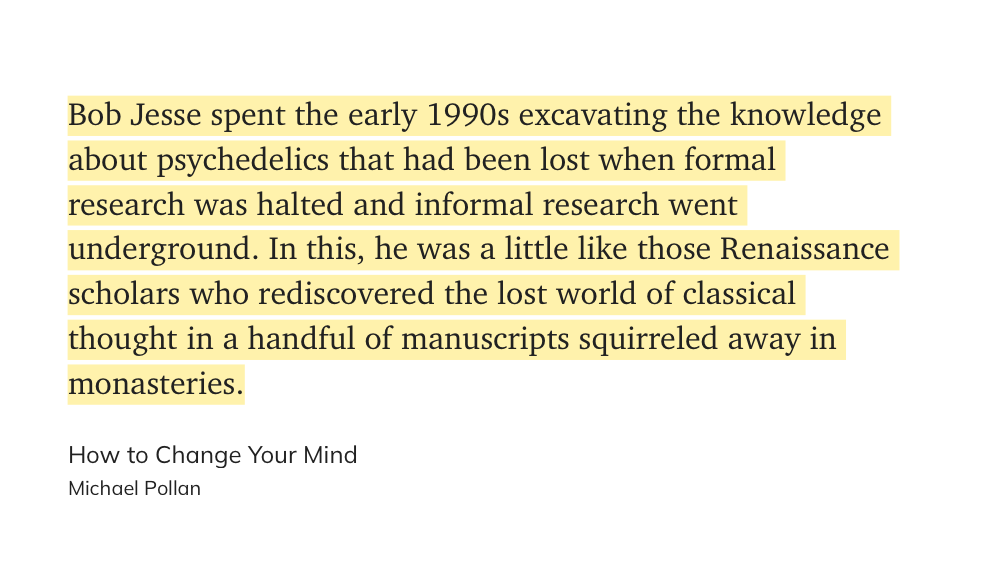
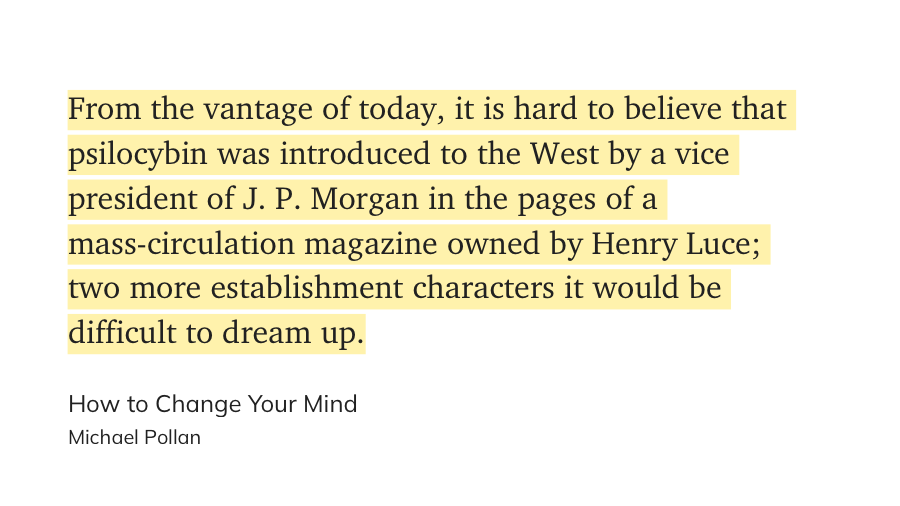
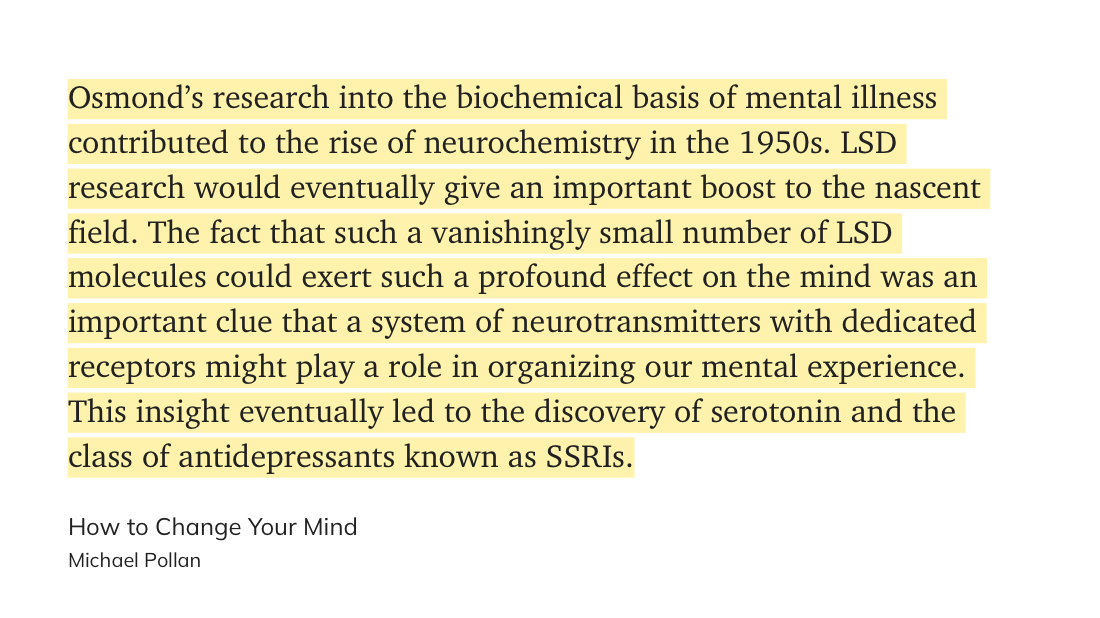
***
I don't know if it's easy to grasp from what's written above, but my attitude to the topic is robust but balanced curiosity. Right in the introduction, Pollan sets the tone for the book.
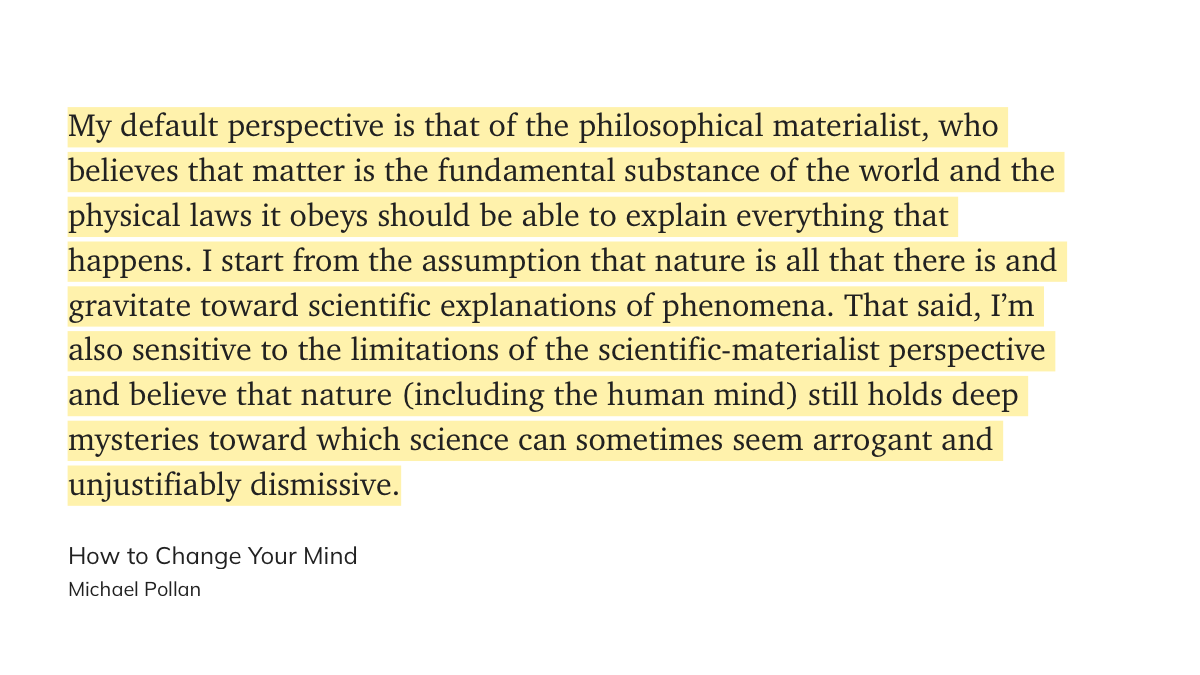
In its essence, it 100% describes the way I see it. I'd be happy if I could deliver it with at least 50% grace he does.


